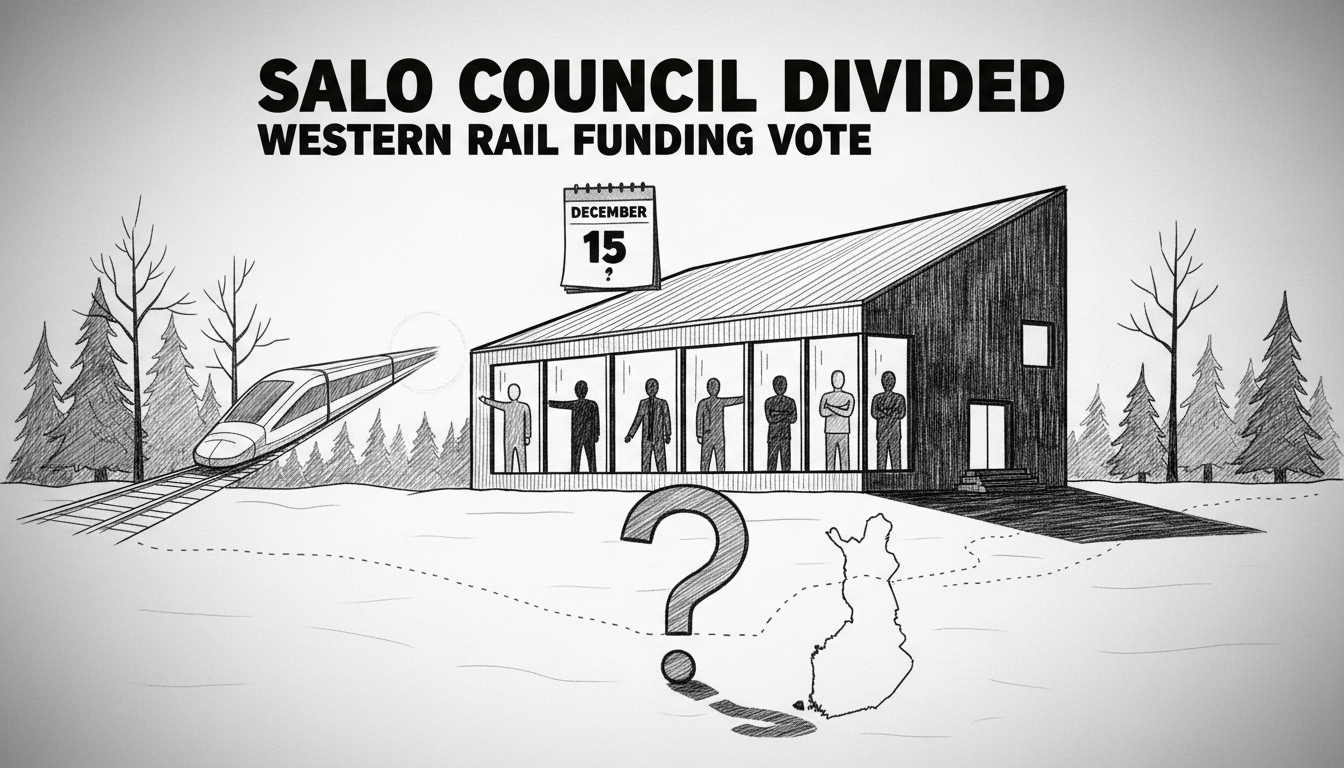The Salo City Council faces difficult negotiations about participating in the Western Rail Line project. Council members await challenging talks as they question government commitment to the infrastructure plan.
Salo will vote on joining the project on December 15. It's the last municipality alongside Lohja to make a decision about the railway.
Political divisions are emerging clearly. Social Democrats and the National Coalition Party mostly support the project. The Centre Party remains split, while the Finns Party opposes it entirely.
Concerns focus particularly on whether parties will commit to the project's second phase. Many worry about binding agreements for future construction stages.
The council will hold an extraordinary meeting for the vote. This comes after negotiators reached a preliminary agreement between the state and municipalities.
Transport Minister Lulu Ranne stated that "the ball is now in the municipalities' court." The project's advancement remains uncertain as some municipalities hesitate.
Earlier criticism from Salo councilors targeted the Western Rail Line proposal. Contentious points included Salo's financial contribution and commitment to the second construction phase.
The first phase covers rail connections between Espoo and Lohja, plus links from Salo to Hajala and Nunna to Kupittaa.
Negotiation details haven't reached Salo councilors yet. The full agreement will become public on November 6.
What is known: Salo's contribution was negotiated downward. The city now owes 27 million euros for the first phase.
Both state and municipalities will pay 400 million euros each for initial construction.
The largest council group, the Social Democrats, generally supports moving forward. Councilor Matti Varajärvi confirmed majority support but acknowledged some opposition within the party.
Varajärvi considers the negotiated agreement favorable, noting the sum equals "construction costs for one large elementary school."
The second-largest group, the National Coalition, also shows strong support. Chairman Kalle Räike said a "clear majority" backs the project but noted they're "not completely unanimous."
Räike expects a tight vote in the council and emphasized careful review of second-phase commitment wording.
The Centre Party's Ulla Huittinen confirmed divided opinions within her group. They're examining how certain the second construction phase commitment really is.
"Salo gets nothing in the first phase. So we need ironclad guarantees for the second phase," Huittinen stated.
She acknowledged Salo's critical stance and predicted difficult discussions ahead, though she personally supports the project.
Finns Party chairman Antti Olkinuora confirmed his group's opposition with "99 percent certainty." He cited municipal financing as the main concern.
"Billion-euro infrastructure projects belong to the state," Olkinuora said, while understanding why some municipalities support the plan.
He noted Turku would benefit directly while Salo wouldn't see immediate advantages.
Other municipalities involved include Espoo, Turku, Lohja, Vihti and Kirkkonummi. Some face similar political divisions over the project.
The Western Rail Line represents a classic infrastructure dilemma: municipalities want transportation improvements but hesitate to shoulder financial burdens without clear benefits. The December 15 vote will reveal whether Salo considers the state's promises credible enough to commit local funds.

